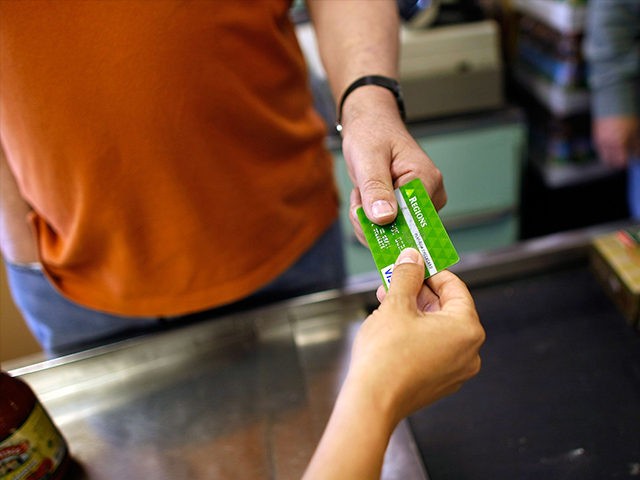The share of Americans who say that the economy is on the wrong track rose in March to 73 percent, according to a survey conducted by housing finance giant Fannie Mae. That is the highest ever share in records that go back as far as 2010.
It’s remarkable how quickly the public’s perception of the economy has deteriorated. A year ago—one year into the pandemic and at the start of Biden’s term as president—the share of people saying the economy was on the wrong track was 51 percent. Thirty-seven percent said the economy was on the right track. Now the right-track share is down to 21 percent—a record low.
There was also a big jump in the share of respondents who said they expect their personal financial position to worsen over the next twelve months. A year ago, around 15 percent were expecting dark times ahead for their personal finances. In March, this moved all the way up to 25 percent, also a record high.
This level of bad feelings about the economy is all the more remarkable given the very low level of unemployment the country is … well, we were going to say enjoying, but that’s the point. We have low unemployment, but almost no one is actually enjoying it. Jobless claims for last week came in at the lowest level since 1968. If you adjusted the figures for the growth of the U.S. population and size of the workforce, last week would undoubtedly have been the lowest level of jobless claims since the invention of unemployment benefits.
The problem, of course, is inflation. People are working, but their paychecks do not go as far. The value of hard-earned savings is falling. The Department of Labor’s Consumer Price Index (CPI) was up 7.9 percent in the 12 months through February. When we get the March data on Tuesday, inflation will most likely be shown to be running even hotter.
When inflation first jumped to uncomfortable levels last year, some prominent economists liked to emphasize that the worst of it was concentrated in just a few areas related to the reopening—like airfares and hotel rooms and car rentals—or in areas experiencing acute price hikes due to supply chain disruptions. But by February, the change in CPI was driven by the prices of gasoline, shelter, and food. The necessities have become much more expensive.
The Federal Reserve gave us a clue about how consumers are coping with ever-higher prices when it released February’s data on consumer credit. Economists were expecting credit to rise by around $16 billion. Instead, consumers piled on $41.8 billion of debt. That is by far the biggest monthly jump in at least a decade. The increase in credit card debt alone was $18 billion. That debt will become more expensive as time goes on and the Fed pushes interest rates up. It’s a mess in the making.
No wonder so many people anticipate a deterioration of their personal financial position.

COMMENTS
Please let us know if you're having issues with commenting.